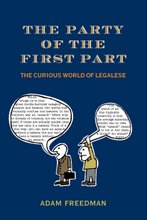And I think we all know what that means.
Or do we? Maryland's Court of Special Appeals recently had to
consider the question of whether the term "What's up?" -- when uttered by a policeman -- constitutes a greeting, or an interrogation. The issue arose in the criminal trial of one Maurice Prioleau. Shortly after Mr. Prioleau was arrested for drug possession, a Baltimore cop addressed him by saying "What's up, Maurice?" -- to which Mr. Prioleau gave an incriminating response.
Prioleau's lawyers argued that "what's up?" amounts to a police interrogation and, therefore, that Maurice should have been given a Miranda warning before he answered. Granted, the question mark sure makes it
look interrogatory, but the court sided with police, stating:
"The phrase 'what's up?' is commonly used as a greeting, especially, as the State
points out, among young people."

